Category Archives for "Blog"
Posts that have edge-case related tests
Posts that have edge-case related tests
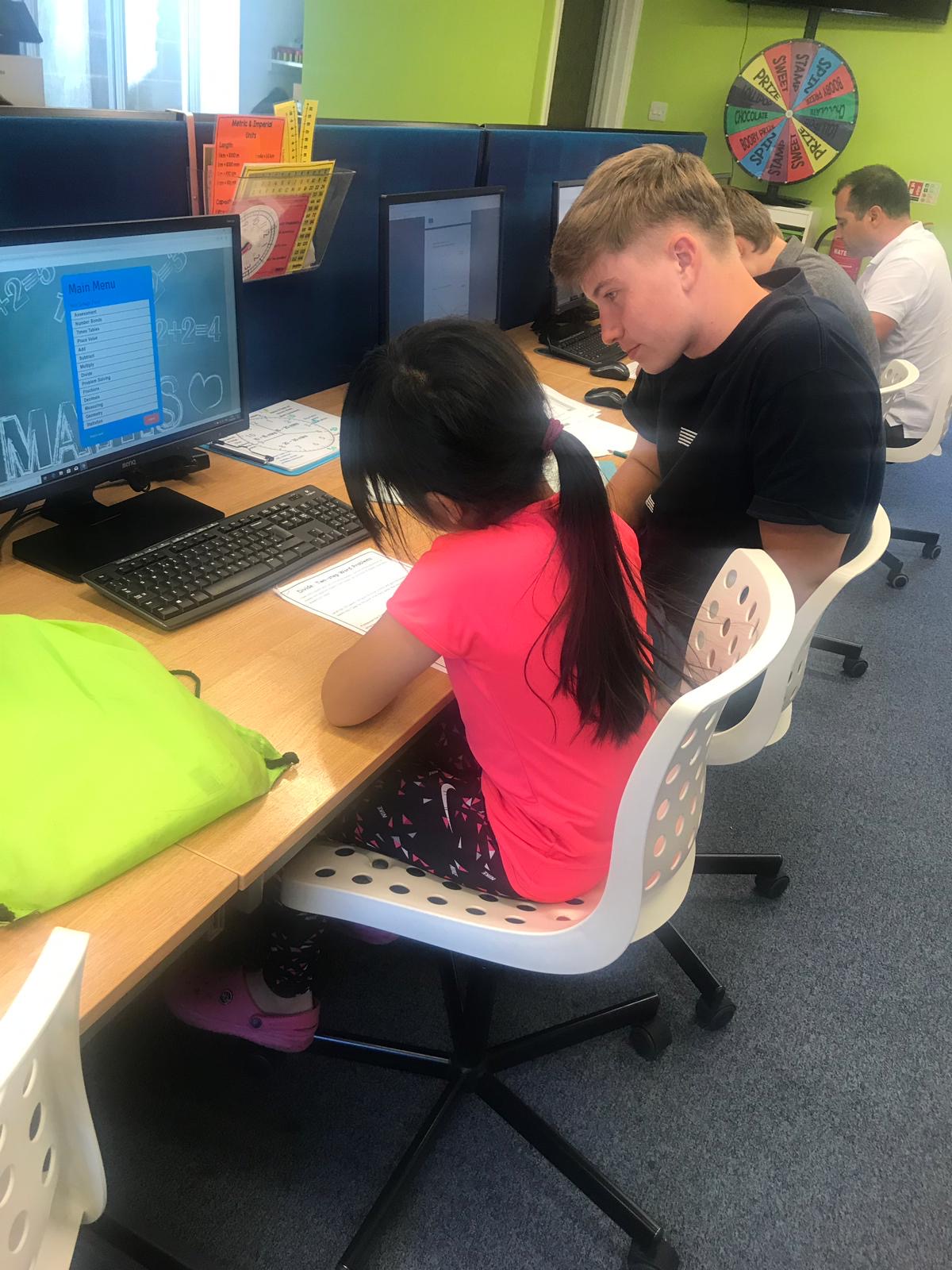
The English language can be challenging to grasp, especially for children learning how to spell. Helping children with their spellings doesn’t have to be difficult though!
Try these tips for making spelling that little bit easier for you child.
Helping children with their spellings has never been easier. Learning spelling patters and rhymes allows certain spellings to be remembered with ease. For some tricky spellings, there is no pattern, like words with silent letters – so these ones have to be memorised. Testing your child on their spellings by giving them weekly spelling tests will help them to remember spellings and letter patterns. For those tricker spellings, make a note of them and go through them together until they are perfected!
Click here for a list of challenging spellings to test your child on.
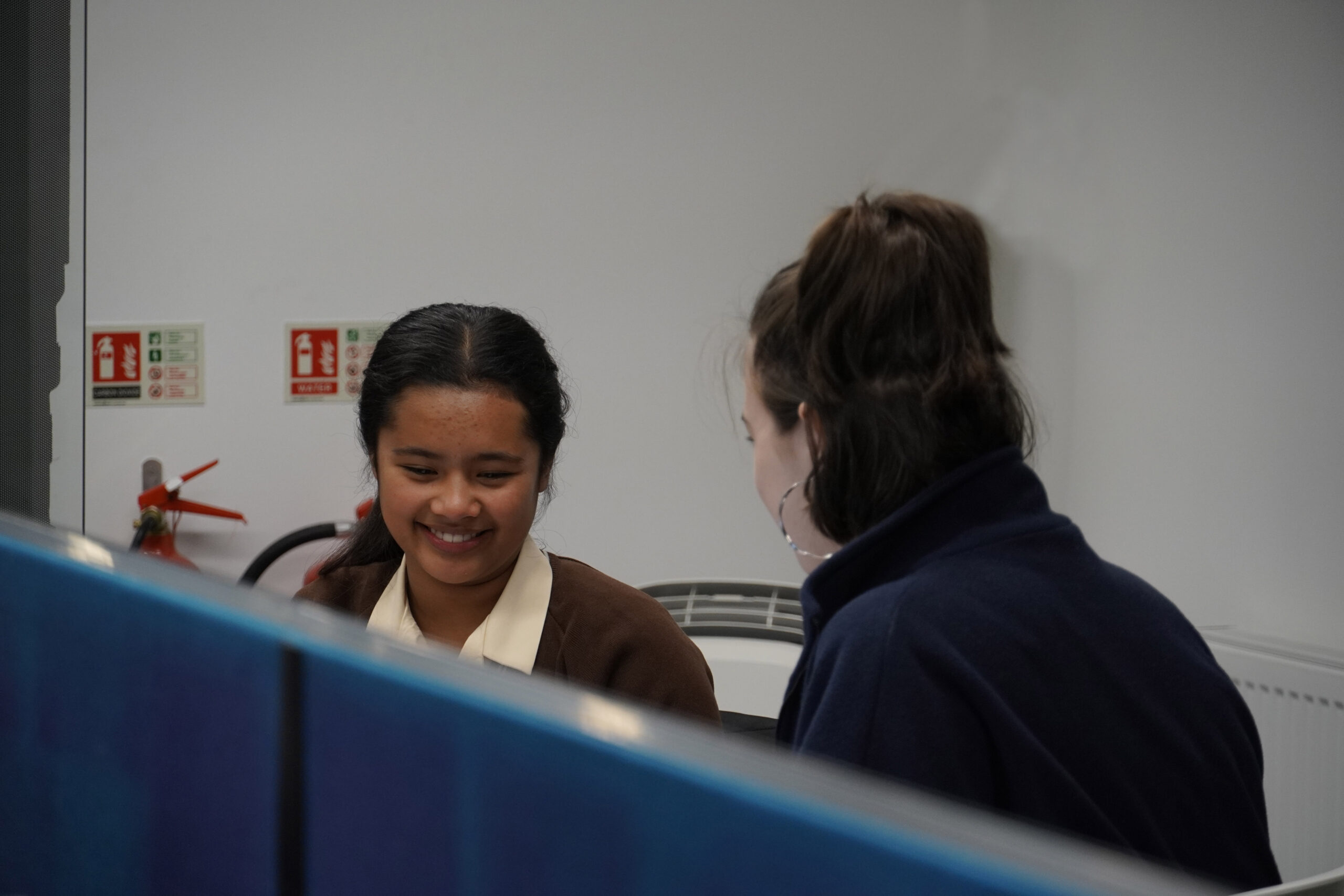
Keeping children’s focus and maintaining their full attention can be challenging when it comes to learning. This is because not all children will be motivated in every subject they do. This is why trying a range of techniques can be useful for maintaining interest with the topic being taught.
Going through work with your child that they are currently working can help keep on track with their progress. Perhaps try talking to them about their day at school. Ask questions like:
Anything they struggle with you can recap together. This will help your child to understand the subject as well as reflect upon their learning.
As well as reflecting on the challenging material, ask them what their favourite subject(s) are. You can encourage and motivate them in what inspires them, too!
Children are constantly learning and like to be rewarded when they’ve been working hard. Helping them recognise that they are progressing with learning and doing well will encourage them in education.
Rewarding can be given in many forms, either something tangible like a treat or in verbal praise, maybe an activity or day out.
These rewards can also vary depending on what has been achieved, for example verbal praise can be given when they have aced a spelling test. Something larger, like a fun day out can be for achieving top marks in an exam or a positive report card.
Discover whether your child learns best through auditory, kinaesthetic or visual learning. Auditory learning concerns learning through hearing, whether it’s listening to music which aids the learning process or repeating study notes aloud. Kinaesthetic learning is learning by doing, this could be acting out something or creating something, like colour coded notes. Visual learning when the learner helps by seeing what is being taught. This type of learner can write out notes, create a poster or draw.
Knowing how your child learns best is a step towards engaging them with learning. Everyone has a unique way of learning so identifying how your child learns most effectively will make learning fun and achievable. Keeping on track with their learning by knowing what they are being educated in and asking them how they feel about the material. This will help to identify which areas they need help in and offer positive encouragement to reward when they are doing well.
If you’re looking for other strategies to help with your child’s learning, like how to mitigate your child, read more on our blog here!
If you’re interested in the 3 ways to engage children with learning, read more about learning engagement theories here.

Motivating your child with learning and education doesn’t have to be a challenge. There are many ways parents can help their children stay on track with school work and learning, through monitoring progress, positive encouragement and being supportive.
Trying different approaches to motivate your child with learning is good for keeping on track with academic progress. For ideas on how to make learning fun for children, look at our blog here.
Read more about science-based approaches on motivating children here.
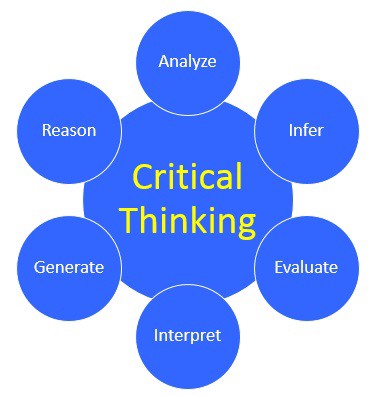
Researcher Ellen Galinsky identifies the ‘Seven Essential Skills Every Child Needs’ in ‘Mind in the Making’ theory. She suggests that ‘to navigate the world, children need to focus, to determine what is important and to pay attention to this, amid many distractions. Focus is one of the essential skills we need to promote in our children.’
Channelling the executive functions of the brain helps us manage our attention, emotions and behaviour, in order to reach our goals. This is why it is useful to introduce critical thinking in children, in order to form concepts and judgements.
‘It is clear that there is information children need to learn – facts, figures, concepts, insights, and understandings. But we have neglected something that is equally essential – children need life skills.’
Blocking out distractions and learning to focus is a skill needed throughout education. This involves focusing on goals and grasping concepts that are taught by focusing undivided attention on what is being taught.
Figuring out how things work through play. Learning cause and effect, creating different reactions through different modes of play. This is how hands-on learning helps with developing critical thinking.
Providing time to think and reflect upon the task or activity they are completing. It is important to let children have time to work out solutions for themselves before assisting.
Wait and allow time to encourage children to learn for themselves before giving them a hand. This helps them develop executive functioning skills, a range of skills that help with staying focused and self-monitoring.
Instead of providing the answers to questions children ask, try and help them by asking what they think the answer could be. This aids with critical thinking, as they will learn to become inquisitive and think rationally instead of asking for the answer. Encourage children to think about what they have asked and what they think about it.
Inspire learning by encouraging children to investigate further, whether it’s for educational purposes or for reflective thinking. Ask why they’ve come to a certain conclusion, whilst thinking about the learning journey.
Innovative thinking helps to develop children’s problem-solving skills. Help them to form their own views and opinions by questioning their processes and methods. Monitoring their learning and thinking of new ways to learn and considering all of the solutions of the learning process will change the way they think, encouraging critical thinking.
Encouraging critical thinking in children helps them to be driven by learning goals. It’s a method that involves using memory to keep a number of different concepts in mind at the same time, whilst paying attention, thinking flexibly and avoiding going on automatic pilot. Through applying all seven executive functions, it allows us to monitor feelings and thinking so we can ‘reflect, analyse, plan and evaluate.’
If you’re interested in Ellen Galinsky’s ‘Seven Essential Skills Every Child Needs,’ read more about it here.
Wondered how to make learning fun for children? Find out more on our blog.
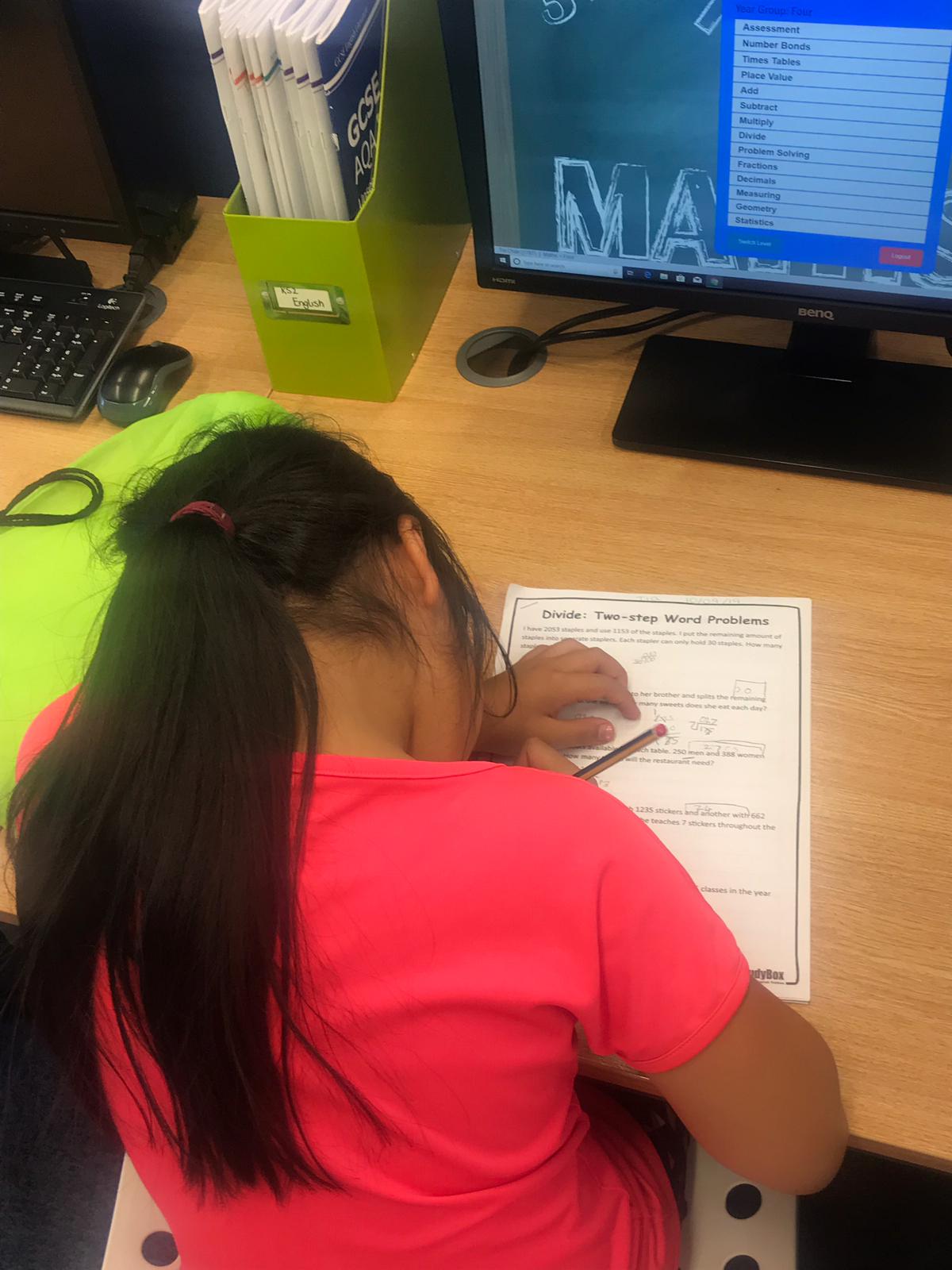
Encouraging creative writing for children has a number of benefits. It improves English and writing skills, spelling, creativity, communication skills, to name a few! It’s also great as a hobby, letting children’s imaginations run wild and write for fun.
According to creativity psychologist, Stephanie Dudek, ‘creativity plays an important role in technological advance, in the social and behavioural sciences, and in the humanities and arts.’
Here are some benefits of creative writing:
Creative writing improves vocabulary, whilst developing children’s unique writing style. They may discover that they prefer writing in one particular genre, or explore many different types of writing! Grammar and spelling also improve with writing practice! The GCSE English Language syllabus involves creative writing, so it’s great preparation for that, too!
“Creative writing aids language development at all levels: grammar, vocabulary, phonology.” (Craik & Lockhart 1972).
Creative writing involves making up plots, scenarios and characters, in a way which will intrigue the reader. This stimulates the imagination and widens children’s thought processes, which is applicable to many other subjects! Creative writing can be an escapism for children, allowing their mind to become immersed in an imaginary world.
As well as developing an individual writing style, creative writing also allows children to express their thoughts and feelings in a fictional world. Sometimes children find it difficult to express themselves, or are unsure how to, so writing acts as a safe place to let out emotion.
Creative writing has been linked to reducing stress levels by decluttering the mind and controlling emotions. This can boost mood and improve mental wellbeing, through participating in this beneficial and fun extra curricular activity.
Encouraging creative writing for children has numerous educational benefits, as well as being a great stress-relief exercise! It is also great practice for the creative writing English Language GCSE syllabus.
For additional help with English, encourage time for creative writing as a hobby at home! There are many ways to build confidence in English, read our blog on expanding your child’s vocabulary here.
StudyBox also offers after-school tuition in English, sign up here for a free trial! Or chat to one of our friendly tutors on 0203 189 1442 for more information.

The mock exams for GCSEs are a way of measuring student’s progress, ahead of the official GCSE exams. They determine which GCSE paper the student will sit and which set they go into. Due to the difficulty of the GCSE exams, as well as the removal of coursework from many subjects, it is a way of measuring how well students are coping.
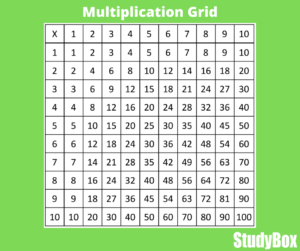
Interested in additional help for upcoming mock exams? Book a free trial on our website! Or talk to one of our tutors on 0203 189 1442 to find out more.
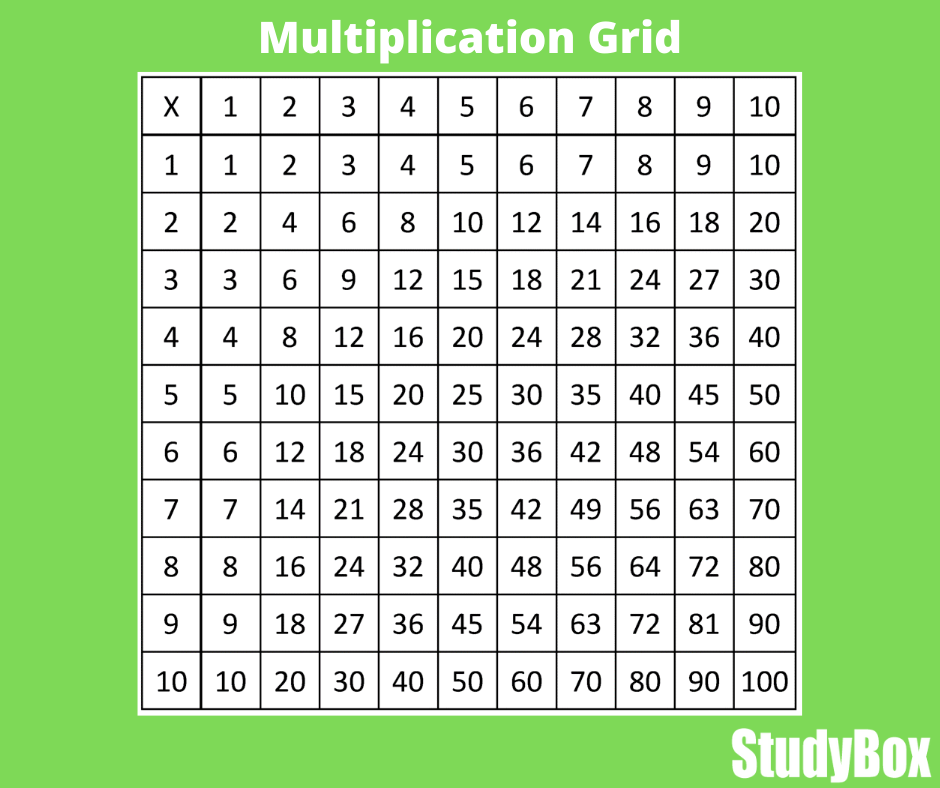
Learning times tables can be a challenge for children, as there are multiple sequences to learn, from 1 up until 12.
Children start learning times tables in Key Stage 1. Times tables are really important to learn as they are the building blocks of maths; they make division, adding and fractions easier.
Knowing your times tables will come in handy for exams, like GCSEs, SATs and 11+, especially the non-calculator exams!
Here are some ways to make learning times tables that little bit easier:


Learning times tables is a skill for life. It increases ability and confidence with maths in future, as we use times tables throughout school and into adulthood, too!
Need additional help with times tables? Sign up for a free trial with StudyBox here! Or call the centre to chat to one of our friendly tutors: 0203 189 1442

This helps anyone learning the English language with the pronunciation of sounding out letters phonetically to make up a word.
According to Henry (1998) ‘teaching decoding and spelling based on word origin and structure results in improved reading and spelling.’
This method is commonly used in reception, to teach children how to read and spell.
There are certain formulas used to teach the English language by breaking down words and arranging certain letter groups together.
Decoding is the process of teaching children to think of how a letter sounds by looking at it and repeating it aloud. This increases fluency with reading and pronunciation.
Once the basic letter patterns are broken down and sounded out, decoding ensures that pronunciation and spelling are easy to teach. It is important to teach phonics and sound patterns in a broken down, simpler format, as when some letters are placed together, it changes their sound. For example, when an r is placed next to a vowel, it changes the vowel sound (like ‘fur‘ and ‘car‘). Once language patterns are simplified, words can be phonetically sounded out and fluency with reading and spelling is improved.
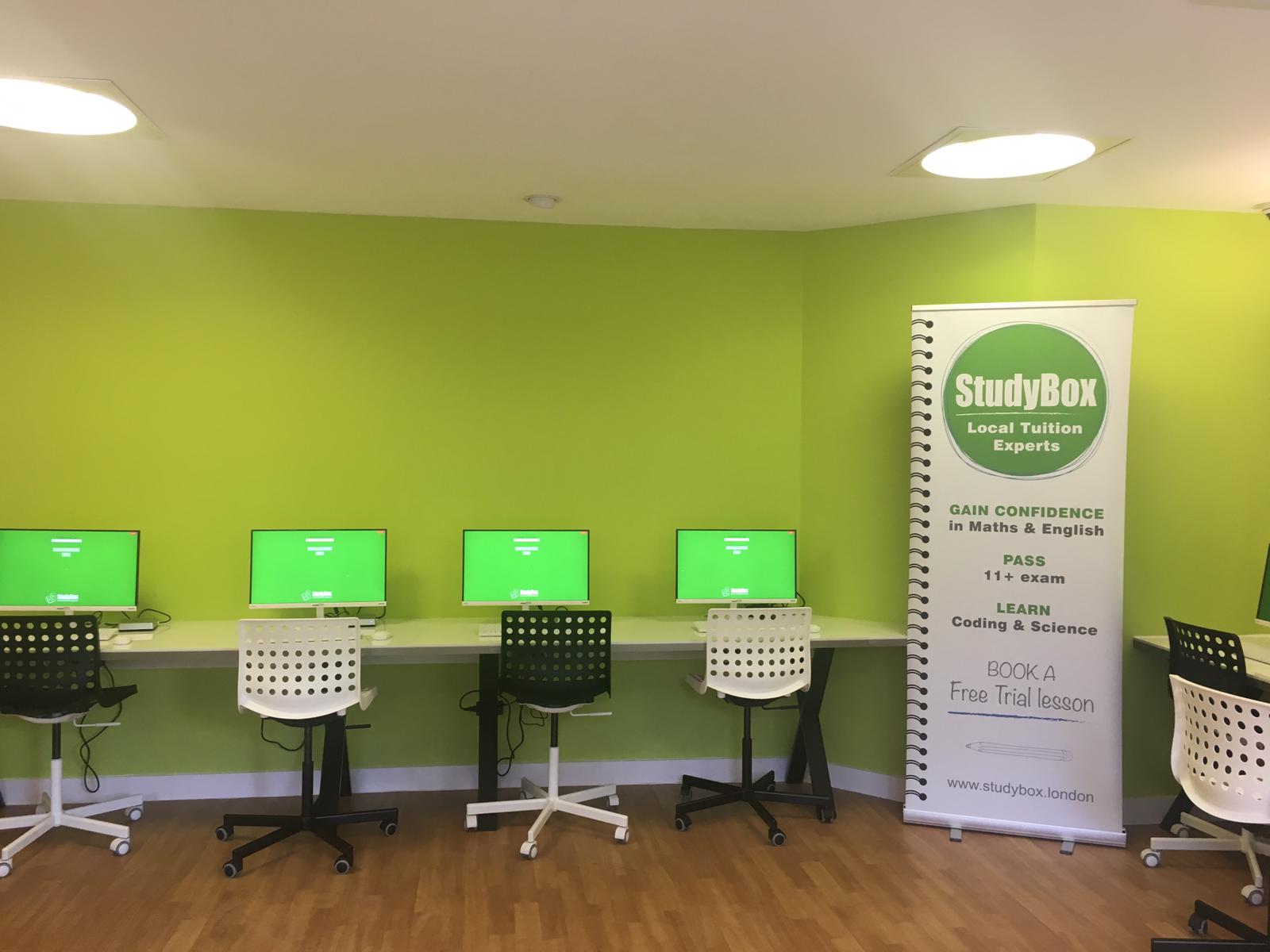
StudyBox Battersea will be the latest addition to our other three centres, in Wallington, Sutton and Croydon.
With our new centre situated on the rear side of Riverside Nursery, it is ideal for parents who wish to drop their children off at nursery, or StudyBox for tuition!
StudyBox is an after-school tuition company established in March 2015, teaching children aged 5-16. We hire a wide range of enthusiastic tutors who adapt to the different learning styles and abilities of students.
At StudyBox, we believe it is important to build confidence. This encourages a love of learning that can help children to reach their full potential. We teach students in line with the National Curriculum and tailor each child’s lesson to meet their unique needs and to attain their learning goals.
Whether it’s assistance for GCSEs, SATs, the 11+ exam, or just additional tuition to be top of the class, StudyBox are here to help!
For a free trial at our new Battersea centre, or any of our other centres, apply here! Alternatively, call us on 020 7459 4110 for a chat.
The address for StudyBox Battersea:
Rear of Riverside Nursery,
Ensign House,
Battersea Reach
Juniper Drive,
Wandsworth, London,
SW18 1TA

Homework and studying are a constant in every child’s life. It may seem like a chore, especially when the subject area is challenging. That’s why making learning fun for children is an easy solution, in order to engage with content and making the workload enjoyable.
Doing creative and hands-on activities will help to engage children through interactive learning. Activities can be tailored to the child’s interest, turning a chore into a fun activity.
Letting children take control of the activity or task will help them become more invested. This will enable the child to create their individual approach to learning, with their own, unique style. Motivate them in the subjects they are interested in and guide them in the ones they are finding difficult.
Make learning more visual through integrating colours, felt tips, paint – various arts and crafts, for a more hands-on approach. This will make the tasks engaging and exciting, so the child will want to participate!
Our tutors at StudyBox believe in making learning fun for children, through activities and tailored sessions to the child. We use a range of approaches and monitor progress, boosting those grades whist making learning that little bit more enjoyable!